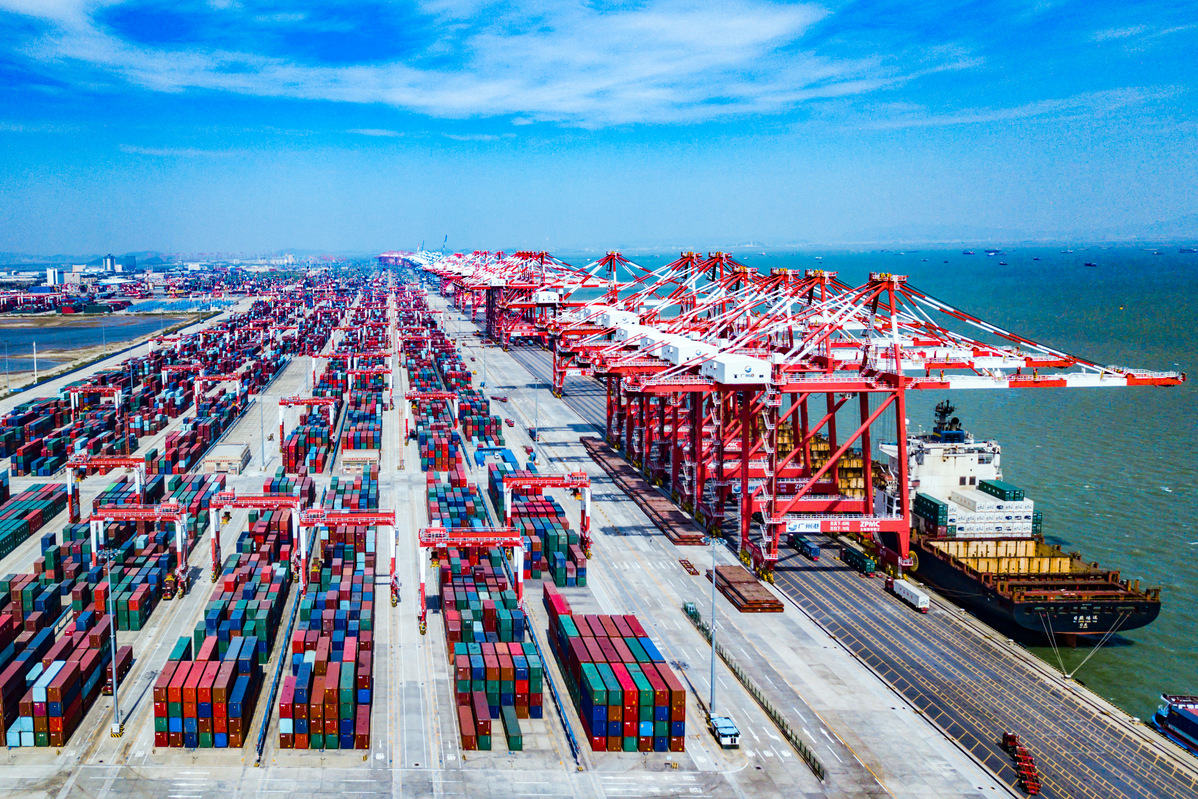China's trade in services making inroads to world


China's ongoing efforts to widen opening-up will make trade in services a pivotal driver in sustaining its economy and fostering fresh competitive advantages in the years ahead, said market observers and business executives.
Acceleration of the global value chain's restructuring has already led to an increased prominence of services segments, such as innovation, finance, logistics, marketing and branding, in the economic growth of China and also the world, they said.
Nie Pingxiang, a researcher specializing in trade in services at the Chinese Academy of International Trade and Economic Cooperation, said the global expansion of traditional manufacturing has slowed due to uncertainties such as softening goods demand, subdued global investment sentiment and growing concern over geopolitics. However, the trend of globalizing trade in services has been gaining momentum, Nie said.
In contrast to goods trade, trade in services refers to the sale and delivery of intangible services like transportation, tourism, telecommunications, advertising, computing and accounting.
The value of China's trade in services grew by 10 percent year-on-year to 6.57 trillion yuan ($914.2 billion) in 2023, according to the latest data released by the Ministry of Commerce.
The country's commitment to improving the quality of its manufacturing sector is expected to drive demand for services related to innovation, technical expertise, information, professional support and design. This will fuel the growth of new business models, industries and operational methods both at home and around the world, said Chen Wenling, chief economist at the Beijing-based China Center for International Economic Exchanges.
China saw its exports of knowledge-intensive services amount to 1.54 trillion yuan last year, up 9 percent year-on-year, according to the Ministry of Commerce.
Chen said that a growing number of multinational corporations have started redirecting their resources toward innovation, logistics and digital solutions within China. This strategic shift aims to expand their market footprint and foster two-way trade in services.
Similar views were expressed by Jens Hildebrandt, executive director of the German Chamber of Commerce in China (North China). "With China gradually opening up its services industry, German companies will have more access to the Chinese market in the coming years."
"The cooperation model is undergoing a transformation," Hildebrandt said, noting that in the past, German companies had supplied technology to China and benefited significantly from the Chinese market.
However, the current landscape shows that China boasts competitive brands and cutting-edge technologies that are effectively making inroads into both the German and other European markets, particularly in sectors related to decarbonization and healthcare, he added.
Speaking at a news conference in Beijing in late January, Guo Tingting, vice-minister of commerce, said the government will actively expand trade in services this year. The growth of this sector is expected to nurture new drivers for high-quality development of foreign trade.
As of the end of January, China had established 112 bases for services export, encompassing a wide spectrum of sectors, including culture, digital services, geographic information, intellectual property and language services, according to the Ministry of Commerce.
Fueled by growing trade volume between China and the Association of Southeast Asian Nations, BEST Inc, a logistics services provider based in Hangzhou, Zhejiang province, opened a 220,000-square-meter sorting center — its largest in Southeast Asia — in Kuala Lumpur, Malaysia, in January.
"With many Chinese companies building plants in Southeast Asia, they have asked us to provide more customized services to ensure the operations of their supply chains in the region," said Johnny Chou, the company's chairman and CEO.
He said that BEST aims to further connect Thailand, Vietnam, Singapore and Malaysia in its logistics network, better enabling cross-border express delivery among these countries this year.




